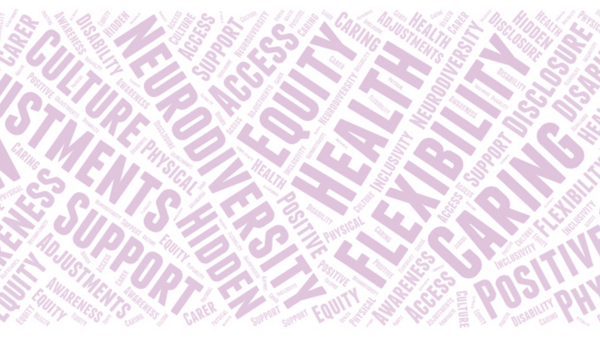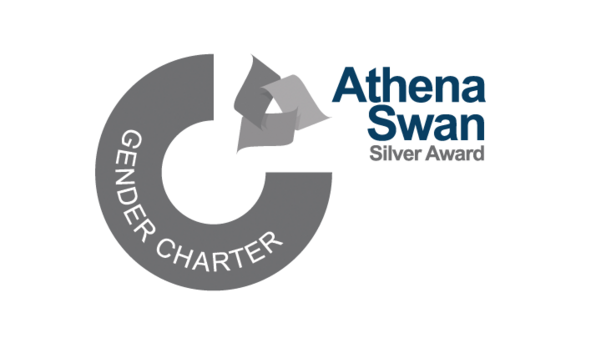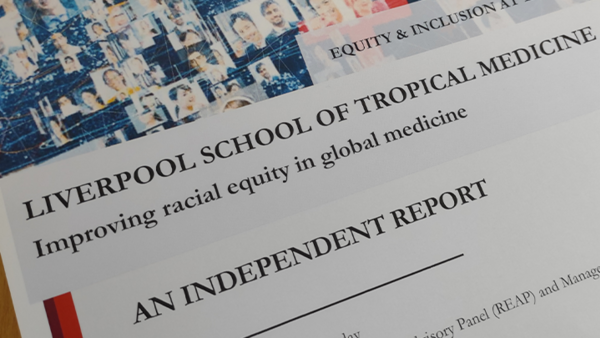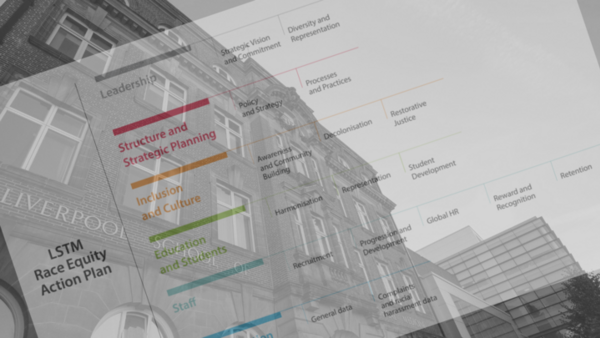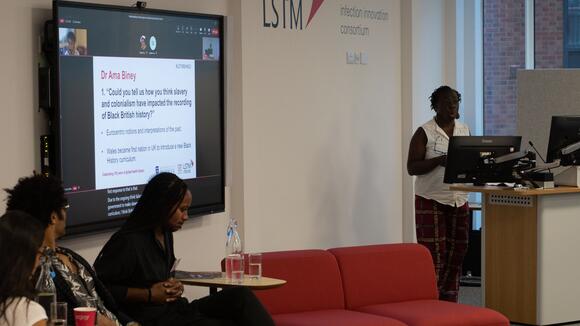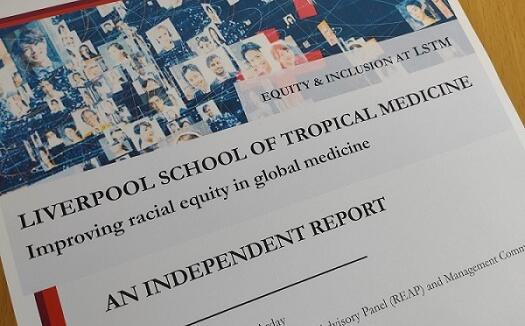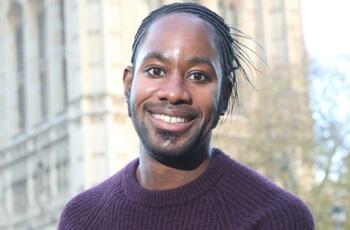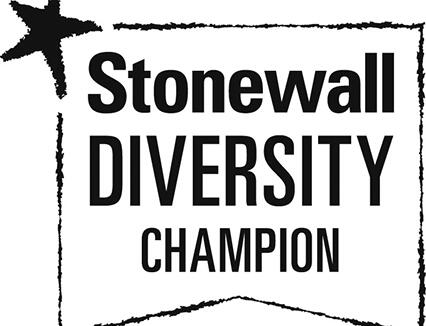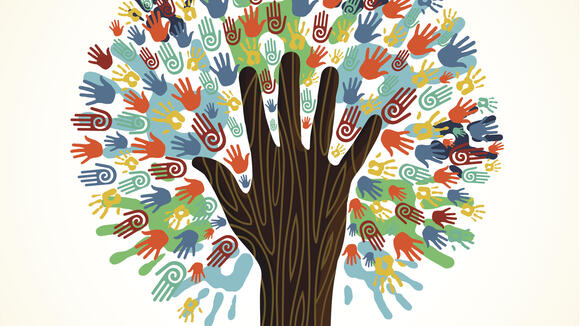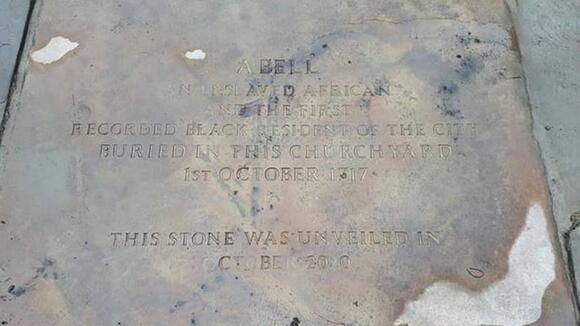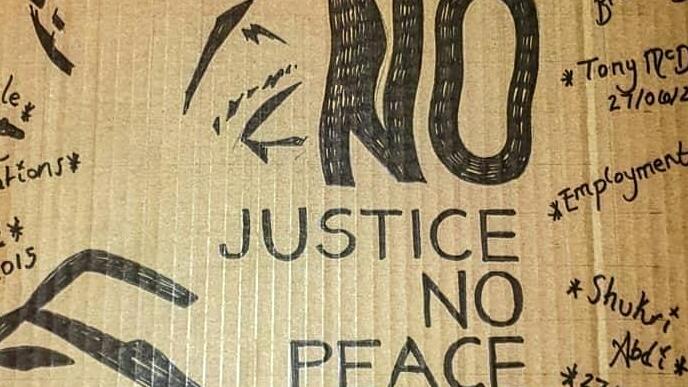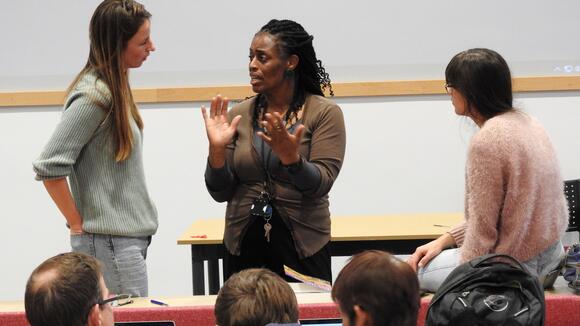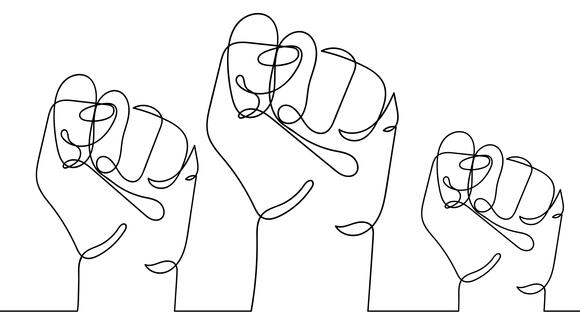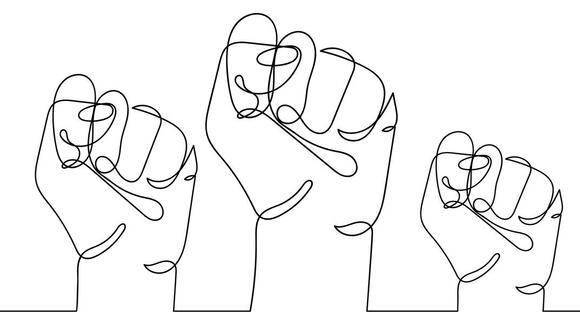
Equity, Diversity, and Inclusion (ED&I)
Liverpool School of Tropical Medicine (LSTM) is committed to embedding, fostering, and celebrating Equity, Diversity and Inclusion (ED&I). This commitment is active and long-standing as we recognise we can and will do more.
As a global organisation our ambition at LSTM is to cultivate workplaces and cultures where our staff, students and global partners all feel valued.
We acknowledge our responsibilities under The Equality Act (2010) and the Public Sector Equality Duty (PSED) and are committed to working beyond the minimum statutory requirements. We believe and uphold that everyone should be treated fairly, regardless of gender, gender identity, disability, ethnicity, religion or belief, sexual orientation, martial, transgender status, age, or nationality.
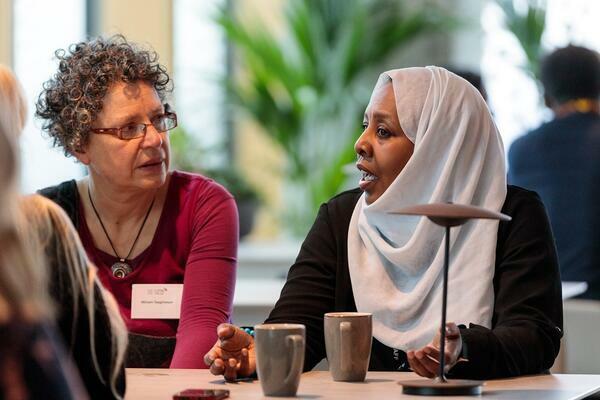
At LSTM we work actively to embed ED&I in our policies, processes, practices, and cultures. We believe ED&I is all our collective responsibility and expect people at every level of our organisation to play their part.
Collaboratively, led by our ED&I Manager, we strive to embed ED&I across priority areas including (but not limited to):
- Governance and Staff Networks.
- Communication, Events and Engagement.
- Learning and Development.
- People Services.
- Annual Reporting, including Pay Gap reporting.
- Policy and process.
- Charters and associated action plans.
- Organisational Culture.
- Data, monitoring and evaluation.
Annual Statutory Reporting
Annual Statutory Reporting enables us to update on progress against objectives, capture the diversity of our staff and students, acknowledge gaps in our activities to inform action moving forward, and identify goals for the academic year ahead.
All higher education teaching and research institutes have a duty to publish information that demonstrates their compliance and responsibilities under The Equality Act (2010) and the Public Sector Equality Duty (PSED). Reports must include information relating to people who share a relevant protected characteristic, who are employees or others affected by institutional policies and procedures.
At LSTM we are committed to working beyond the minimum statutory requirements and endeavour to celebrate diversity, embed equity and foster inclusion; to be an employer where our global community of staff, students, and partners all feel valued. We recognise that there is always further work to do on all areas of inclusion, which informs our continued efforts to improve.
In publishing our Annual Equity and Inclusion, and Gender and Ethnicity Pay Gap reports we seek to:
- update on annual progress against objectives;
- capture the diversity of our staff and students;
- acknowledge gaps in our activities to inform action moving forward;
- and identify goals for the academic year ahead.
We are committed to building on our efforts and look forward to reporting our progress on these important priorities year on year.
In publishing our Annual Equity and Inclusion, and Gender and Ethnicity Pay Gap reports we seek to:
- update on annual progress against objectives;
- capture the diversity of our staff and students;
- acknowledge gaps in our activities to inform action moving forward;
- and identify goals for the academic year ahead.
We are committed to building on our efforts and look forward to reporting our progress on these important priorities year on year.
ED&I Governance
At LSTM ED&I is brought together at our Equity and Inclusion (E&I) Committee. The committee is chaired by our Institute Director, and Co-Chaired by our Global HR Director – with our ED&I Manager playing an instrumental role.
The committee meets on a quarterly basis and brings together specialist staff network and committee chairs, as well as departmental representatives, to update on activity, sign-post events and escalate discussion points. Members are also expected to maintain oversight of and input into ED&I efforts across the business. The committee also works collectively to track institutional progress against annual ED&I objectives as outlined in Annual E&I reporting.

ED&I Staff Networks
At LSTM we encourage all staff to become members of our various specialist ED&I Staff Networks.
Each ED&I Staff Network represent diverse communities and are open to all staff, including allies and supporters. Networks allow staff to share experiences, create belonging and community, seek support and celebrate diversity.
Diversity charters, memberships, and action plans
Diversity charters, memberships, and action plans guide LSTM on its journey of continual learning to becoming a more equitable, diverse, and inclusive organisation.
Athena Swan
The Athena Swan Charter is a framework which is used across the globe to support and transform gender equality within higher education (HE) and research. Established in 2005 to encourage and recognise commitment to advancing the careers of women in science, technology, engineering, maths and medicine (STEMM) employment, the Charter is now being used across the globe to address gender equality more broadly, and not just barriers to progression that affect women.
Race Equity at LSTM and the Race Equality Charter
Independent report into Race Equity within LSTM. 2022
In February 2022 LSTM published an independent and external Race Review carried out and authored by Professor Jason Arday. Upon its publication Professor Jason Arday confirmed that the review “addresses some very important areas for improvement concerning the school’s commitment to addressing and dismantling systemic racist practices. The review and its recommendations are also reflective of LSTM’s commitment to becoming an anti-racist organisation”. The review was published following concerns raised by staff and students in an open letter to LSTM’s Executive team about racial inequity and power imbalance in Global Health more broadly.
In response to publication of the review LSTM’s Institute Director David Lalloo said that “I as Director, Executive and Board of Trustees, accept the findings of the review in full and are completely committed to addressing Professor Arday’s recommendations. We share the report publicly to allow all our partners to hold us to the highest standards in ensuring we achieve racial equality within LSTM. We have a strong desire to do better and be better and are committed to a vision of becoming an actively anti-racist organisation”.
Race Equity Action Plan
Following publication of the Race Review and changes in ED&I personnel (with a new ED&I Manager appointed in April 2022) LSTM was pleased to publish its first Race Equity Action Plan in October 2022 . The action plan was developed in consultation with Professor Jason Arday and a broad range of stakeholders from across the school.
The Race Equity Action Plan provides a schematic of work that will be strategically implemented to create sustainable change at LSTM. Within the action plan, measures will be provided to engage internal and external stakeholders to quality assure our endeavours and commitment towards Anti-Racism. This body of work represents LSTM's commitment to becoming an Anti-Racist institution through recognising and eliminating the racialised barriers that exist which ultimately sustain facets of systemic and institutional racism. To support this commitment, LSTM appointed a Race Equity Project Manager in January 2023. The role will work closely with our ED&I Manager, Executive Team, and stakeholders at all to roll-out implementation, monitor progress, and empower LSTM to dismantle racial inequities within its processes and practices.

Contact:
Samia Benbrih (pronouns she/her)
Equity, Diversity and Inclusion Manager
inclusion@lstmed.ac.uk


